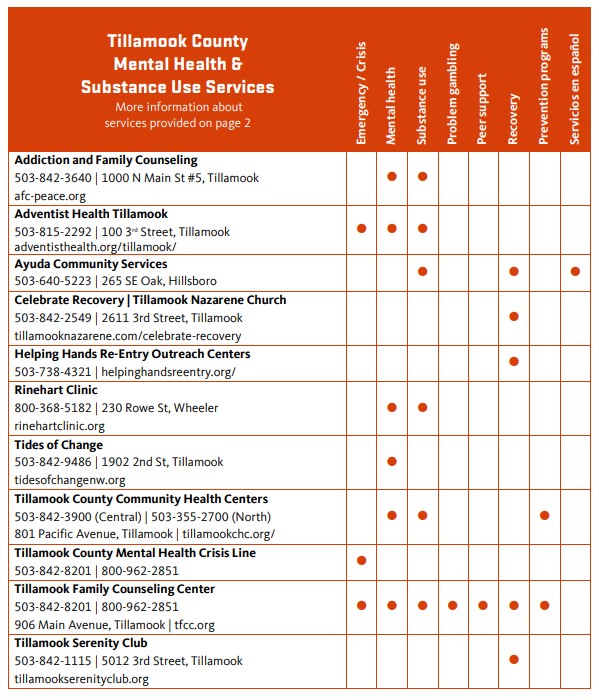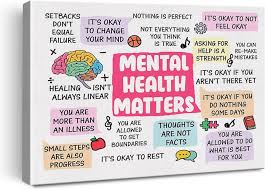EDITOR’S NOTE: Conversations with Coach Denise, an advice format column will provide a way to reach out with questions about mental health and more to normalize seeking mental health guidance, and questions will be anonymous. Denise will provide help and hope, connect with local resources and more. Send your questions to editor@tillamookcountypioneer.net.
 By Denise Donahue, Optimal Life Coach
By Denise Donahue, Optimal Life Coach
Q: “My 16-year-old daughter used to be really open with me, but lately she just shuts me out. Every time I ask how she’s doing, she says she’s fine but looks completely overwhelmed. I don’t want to push, but I’m worried. What should I do?”
First off, you’re not alone. What you’re describing is incredibly common—and it doesn’t mean you’ve done anything wrong. Teenagers are wired to seek more independence, but that doesn’t mean they don’t still need you deeply, even if they’re not showing it the same way.
One thing I tell parents often is this: Don’t chase the deep talks. Create space for them. Ask questions when you’re not face-to-face—like in the car, on a walk, or even via text. Let her know you’re there without pressuring her to open up.
You might say something like, “I’ve noticed you’ve seemed a little off lately, and I just want you to know I’m here. No pressure to talk, but I care and I’m not going anywhere.”
That quiet presence goes a long way. And remember, your calm and consistency are the safety net she may not even realize she needs.
You’re doing better than you think.
– Coach D.
 Q. “How do I stop feeling like I’m supposed to have everything figured out by now?”
Q. “How do I stop feeling like I’m supposed to have everything figured out by now?”
When you figure that out, let me know, because I’m still working on it too.
Here’s the truth: life isn’t a straight line. It’s a beautiful mess of curveballs, surprises, and unexpected detours. From the moment we wake up to the moment our head hits the pillow, we’re navigating situations that we often have zero control over. So it’s no wonder we feel like we’re falling behind or not “figuring it out fast enough.”
But maybe the real problem isn’t that we don’t have it together. Maybe it’s that we’ve set some unrealistic expectations on what “having it all together” is supposed to look like.
Let’s be honest…who decides what that even means? Having your dream job by 25? Owning a home? Never feeling lost or unsure? That version of perfection is made up—and it’s exhausting to chase.
Here’s what I tell my clients:
Take it one day, one step at a time. When you feel like life is spiraling, try this simple practice: keep a journal by your bed. At night, before you go to sleep, write down the thoughts and worries that are circling in your mind—the ones that make you feel like you’re not where you’re “supposed to be.” Be specific. Is it because you’re not where you want to be in your career? Still living at home? Not in a relationship like everyone else?
Once you’ve written those things down, ask yourself: What’s actually in my control right now? Write down 2-3 small steps or solutions you could take. Then list out the pros and cons of each.
When we get the chaos out of our heads and onto paper, we create space to breathe and think. I always say—it’s like our lives are stored in some invisible iCloud above us, just swirling around. And until we download those thoughts onto paper, it stays overwhelming.
You don’t need to have it all figured out. You just need to take the next right step. And then the next. That’s how clarity comes—not from having it all together, but from continuing to move forward even when you don’t.
-Coach D.
 Q. “I feel anxious all the time, even when things are “fine.” What’s wrong with me?”
Q. “I feel anxious all the time, even when things are “fine.” What’s wrong with me?”
First of all—nothing is wrong with you. What you’re feeling is more common than you might think, and believe it or not, it’s your brain doing its best to protect you.
Anxiety is actually part of our hardwiring. Think back to the caveman days—when our ancestors stepped out of their caves and spotted a saber-toothed tiger, their brains had to instantly decide: fight, freeze, or flee. Without that spike of anxiety, they would’ve been dinner. That system kept them alive—and it still lives in us today.
The difference is, your brain doesn’t always know the difference between a real, physical threat and everyday stress—like your boss breathing down your neck, your bills stacking up, or just trying to navigate adulthood. So it sounds the alarm even when you’re technically “safe.”
The good news is, once you recognize that anxiety is your brain’s way of trying to help—not harm—you can start to take back control.
Step one: calm the body
Start with simple deep belly breathing. Inhale slowly through your nose and let your stomach rise. Hold it for a few seconds, then exhale through pursed lips—making your exhale longer than your inhale. This helps signal to your brain that you’re not in danger, so it can slowly come out of that fight-flight-freeze mode. Do this a few times. You’ll be surprised how much it helps to simply pause and breathe with intention.
Step two: challenge your thoughts.
Once your body starts to settle, take a look at what’s running through your mind. Our thoughts drive our emotions, and learning to notice and shift those thoughts is key. Let’s say the bills are piling up and your paycheck isn’t stretching far enough—that’s a real stressor, and it makes sense you’d feel anxious. But instead of letting those thoughts spiral, take action: write down the problem, then come up with two or three possible solutions. Ask yourself, What’s in my control right now? What small step can I take today? Seeing it on paper can make a mountain feel like a series of small hills you can climb.
Step three: build a routine of calm.
If your anxiety feels constant, it might be helpful to make breathing exercises, mindfulness, or journaling part of your daily routine. Even five minutes a day can help retrain your brain to feel safe, grounded, and more in control.
And remember—you’re not broken. You’re human. Your brain is doing what it was designed to do—it just needs a little help recognizing that you’ve got this.
Send your questions to Coach Denise at editor@tillamookcountypioneer.net.
https://www.tillamookcountypioneer.net/new-weekly-advice-column-conversations-with-coach-denise/



